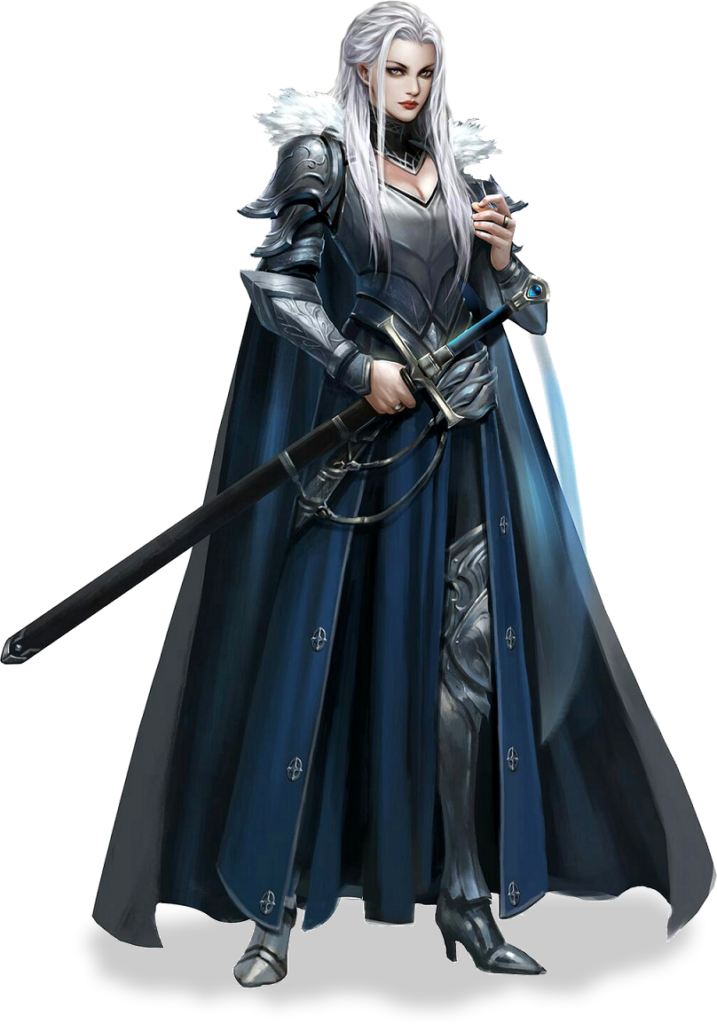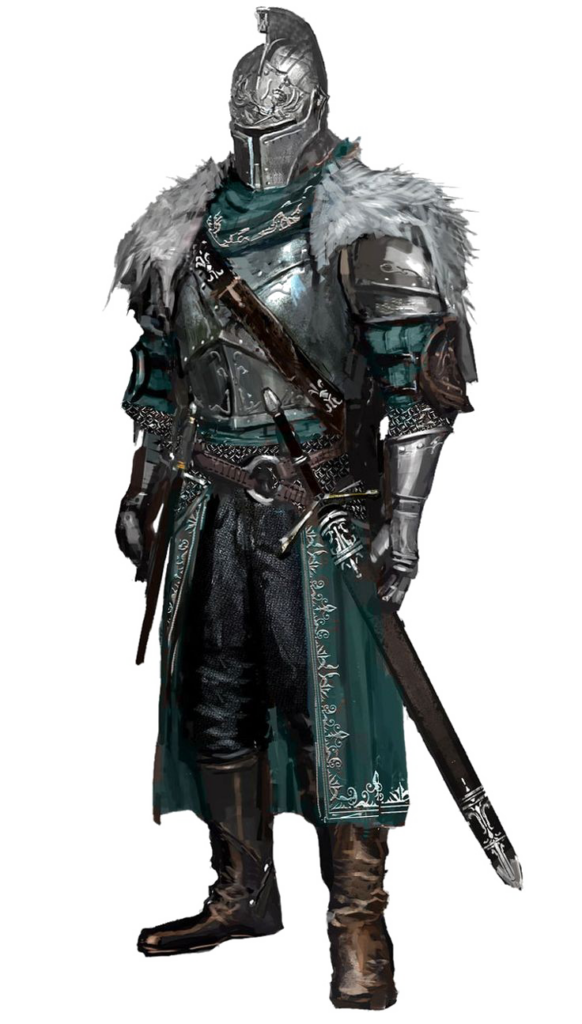Summary


Those who rule must rule well for those that are ruled. This was the driving motive behind the formation of the Sable Order, a group who saw the tyrannies of the Black Hand in Sestra and realized that while law and order must prevail for civilized society to advance, it must nevertheless be tempered by the needs of the people in order to foster a flourishing economy and growth in the city.
Most of the Sable Order are followers of Siamorphe, Chauntea, Helm, and Hoar. Their main focus is improving Sestra and the way of life there. Its leaders trace their lineages back to the original Sestran nobility.
Typical Member Traits:
- Skilled orators, tradesmen, negotiators, and diplomats
- Strong sense of duty, familial responsibility, knowledge of economics
- Typically lawful and non-evil
Origin/History

Sestra has suffered invasions by both Slitherscale lizards and Bloodmaim orcs. Thus, the people of Sestra know more than most that a strong government is necessary for the safety and security of the city’s populace. When the Black Hand assumed control of the town after Sundren’s legions were destroyed by Bloodmaim orcs, many noble houses within Sestra welcomed their arrival with only some relucatnce, hopeful that at least now they would be protected from violent external threats. As the Black Hand’s rule continued, however, they soon came to realize that their brand of Bane’s tyranny was not conducive to the development of the city or its wealth. Thus, the Sable Order was formed by some of those same noble houses that welcomed the Black Hand’s presence, working to temper the more extreme of the Banites’ judgments within the city.
In Marshal Hashart Datton, they found a surprisingly different sort of leadership. Despite his devotion to his God, Datton was far less concerned with stamping out what other faiths remained within the walls. Then, as Sestra cemented its independence in the Silent Peace, and with the eradication of Colibrus’ followers and influence in the Duskfall, the Sable Order felt its influence within the city grow. Sestra began an era of increased prosperity as the threat of war eased. The Order’s upper echelons now serve side by side with those of the Order of the Rod and Star as advisors to the Exarch on the Exalted Ministry. Meanwhile, House Wetherrun and House Mossglow expand their prestige across the valley, and with it, the prestige of the Sable Order.
Base(s) of Operations

Sestra, Sable Order Manse
Objectives

The Sable Order’s goals center on the expansion of Sestra’s economy, trade influence, and diplomatic leverage. To that end, Lord Wetherrun has secured avenues of trade with many merchants from outside of Sestra itself. The strength of Sestra’s agricultural supply as a bargaining chip also makes keeping the local farmers happy a never-ending goal. Elsewise, the Sable Order has become the defacto arbiter of mercantile disputes and their judicious decisions only reinforce in the eyes of the people of the Order’s necessity.
The Sable Order’s relationship with the Order of the Rod and Star (otherwise known as the Black Cloaks) is uneasy. They often find their goals in diametric opposition and are constantly jockeying for power and the Exarch’s ear. The Sable Order sees the Black Cloaks’ focus on militancy to be detrimental to the growth of the city, particularly the forced conscription of Sestran youth into the military.
Ranks

- Lord Administrator
- Steward
- Chamberlain
- Ambassador
- Speaker
- Seeker
- Retainer
- Page
Timeline/Historical Events of Note

- 1376 – Sestra is overrun by Slitherscale during the Lizard War. Houses Wetherrun and Mossglow recognize the need for a strong leader to rule over Sestra.
- 1381 – The Black Hand takes control of Sestra in the aftermath of the Second Bloodmaim War. House Wetherrun and others are among the first to pledge their fealty.
- 1384 – Seeing the town strangled by the Black Hand’s unyielding fist, Wetherrun and other nobles join to form the Sable Order.
- 1385 – 1389 – Duskfall and the Silent Peace. The Sable Order takes advantage of Marshal Hashart Datton’s sympathies to excise the more fanatical and tyrannical elements of the Black Hand.
- 1405 – 1430 – The Sable Order’s policies see Sestra grow economically like never before.
- 1421 – Lord Percival Wetherrun is appointed to the Exalted Ministry as the Minister of Coin.
- 1432 – Wyman Zuul is named Exarch of Sestra in accordance with Sestran Law. He retains close ties to the Sable Order and keeps Lord Wetherrun as Minister of Coin.
Leadership/People of Note

Lord Percival Wetherrun, Minister of Coin

A cunning and ruthless advisor to the Exarch, the middle-aged Lord Wetherrun is seen by most as one of the main reasons the Sable Order has flourished in Sestra. He has outplayed, out-bargained, and outmaneuvered most of his major competition in the city and his monopoly on several major imports into Sestra makes him a dangerous foe to any who might seek to supplant him, whether by monetary or military might. His reputation for reneging on deals he judges as no longer beneficial for himself or his house has earned him the pejorative moniker “the Lord of Fair Weather,” though none would dare speak it in his presence. Both noble and a scion of Siamorphe himself, none could confuse him for a philanthropist; he is quick to draw a line where the needs of the peasantry are concerned. The common folk should never exceed their station. They exist to be ruled and it is only by Siamorphe’s grace that they are ruled well.
House Mossglow
If Lord Wetherrun is the face of the Sable Order on the Exalted Ministry, Lady Brunhilda Mossglow is the Order’s unseen hand, operating behind the scenes in quiet support. In a bid to maintain her neutrality between the Sable Order and the Order of the Rod and Star, she has elected not to officially join either organization but those close to her know where her loyalties lie. An ever-clever socialite and schemer, Brunhilda made great political moves to strengthen House Mossglow even before she became the family matriarch. Unlike those her brother often spent time appeasing, Brunhilda reached out to the commonfolk and that’s where the house found its strength. Brunhilda became known for looking out after communities that weren’t entirely comfortable with the dark gods. And while publicly praising the dark three during ceremonies, most took note of her continuous yet passive support to the Church of Chauntea. Due to this, she has gained the unofficial title of ‘Garden Mother.’ This title is most often used by common folk who give her praise yet at times as an insult by her political enemies in aim to paint her as a rural bumpkin.
Meanwhile, her son Dragomir has joined the Sable Order formally and is in fierce competition with his twin Grozdan, a member of the Black Cloaks. Which of the twins succeeds Brunhilda will likely decide where House Mossglow’s support goes in the future.





